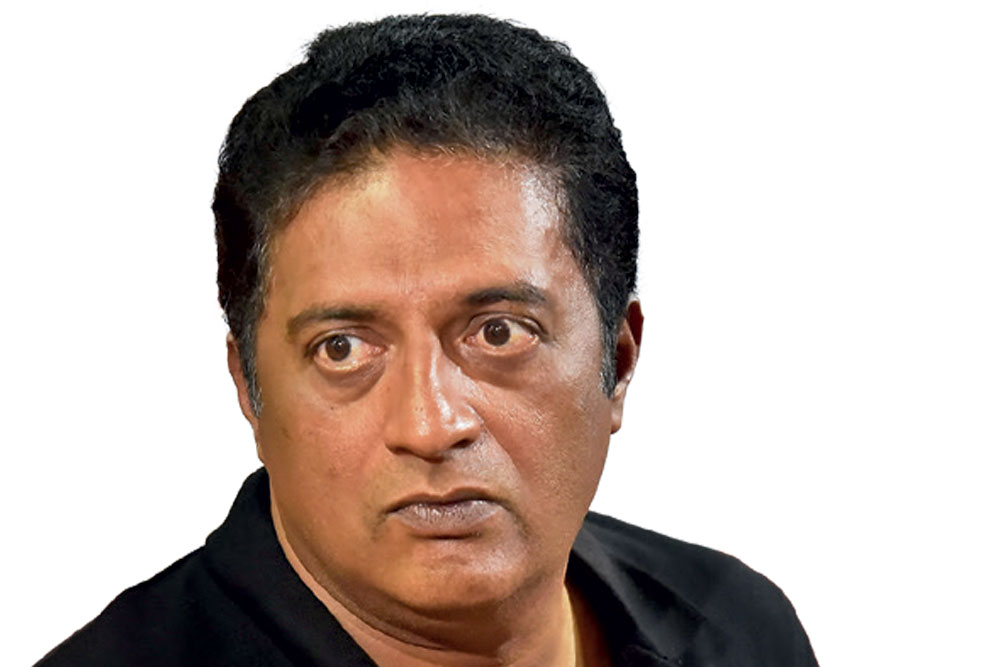Taking Nagaland to the World
Theja Rio is now working on his first feature film, set in the 1960s, focusing on the last remnants of the Konyak tribe who are resisting Christianity
 Kaveree Bamzai
Kaveree Bamzai  Kaveree Bamzai
Kaveree Bamzai  | 31 Oct, 2024
| 31 Oct, 2024
/wp-content/uploads/2024/10/Stargazer2-4.jpg)
Theja Rio
For the longest time, we didn’t have theatres in Kohima, says Theja Rio, director of Ade (On a Sunday), which is the first short film from Nagaland to travel to the film festivals globally. Rio’s family had a colour TV and the neighbours often came to his home for a collective viewing experience. That didn’t stop Rio from dreaming about cinema and he found an ally in Nancy Nisa Beso, who grew up in a home located a floor below a VHS lending library called Mayfair. “And then there was a neighbour who would listen to the audio cassette of the 1975 classic, Sholay. He would do this every day at 5 pm,” says Beso. She first met Rio when he was seven years old and she tried to dissuade him from filmmaking. But that did not deter him and having got admission to the National Film and Television School in Beaconsfield, UK, he started thinking about a short film on his childhood friend, Ade, who now worked in construction. “The first draft is what we shot. It was a love letter to the world I grew up in,” says Rio. Ade (On a Sunday) is a simple, yet intricate film, shot in Pfuchama, a village in Nagaland that looks at the world through a seven-year-old’s eyes. Rio used non-professional actors who could speak the Angami dialect and chose the boy who played Ade because of of his whistling skills. The film took three days to shoot. Says Beso, “Theja was adamant about using 16 mm because he wanted the film to have a nostalgic element to it.” Once it had been shot, the film had to be sent by train to avoid any mishap while in flight. Ade (On a Sunday) has been to several film festivals and won the Royal Stag Large Barrel Short Film Award at the Mumbai Academy of Moving Image (MAMI) Film Festival in October. Rio is now working on his first feature film, set in the 1960s, focusing on the last remnants of the Konyak tribe who are resisting Christianity. Rio will use non-professional actors again and shoot on 16 mm film.
Everyone Is a Manjummel Boy

Ask Chidambaram S Poduval why Manjummel Boys resonated with the world, making ₹230 crore on a budget of ₹20 crore, and he says: “It is because all of us have a Manjummel Boy inside us.” Which in effect means that we are all boys who are considered losers and no-hopers. Chidambaram himself is a Manjummel Boy and says with great pride that he has been arrested too. When I ask him for what, he says, “Oh, the usual. One gang gets into a fight with another and both land up at a police station.” It is also why so many mothers went to see the film. “It was cathartic for them,” he says. Now on Disney+ Hotstar, Manjummel Boys is a film that recounts the struggle of a group of 11 boys who do everything in their power to save their friend who falls down a 120-foot hole in Kodaikanal. “I was fascinated by the transition of a man to God,” says Chidambaram. He still hasn’t recovered from a special phone call from actor Rajinikanth who praised his film, as well as Kamal Haasan’s championing of it. Next up is a Telugu film for Mythri Movie Makers and a Hindi movie for Phantom Studios.
Prakash Raj’s Inner Universe

He has five farms in the country because he wants to be close to nature. He grows avocados and mangoes. “I am rich enough to lose work,” he says of the eight bans on him in the Telugu film industry. “But we always end up working together,” he adds. The actor Prakash Raj, who has worked across languages, is deeply concerned about the state of the country and the lack of empathy people have developed towards each other. “Pain is a very personal thing, whether it’s my friend Gauri (the late journalist Gauri Lankesh) or my son Sidharth (who was five when he died). But, then I just can’t become selfish. I have daughters, I have a family, I have a profession, and I have people. As a human being, I have a life and I am accountable for that too.” When Raj buried Gauri, the daughter of his mentor, Lankesh, he promised her that he was sowing her. Her ideas and her thinking. And though he lost the Lok Sabha election from Bengaluru earlier this year, where he fought as an independent, the seven months taught him a lot about politics and life. Prakash Raj, whose work in art-house cinema is as brilliant as in commercial cinema across languages, continues to work for theatre with Nirdiganta, an incubation centre for the arts, which he has set up in his Mysore farm. So much for reel-life villainy.

/wp-content/uploads/2024/10/LawrenceBishnoi.jpg)






/wp-content/uploads/2024/11/Kumar-Shahani.jpg)
/wp-content/uploads/2024/10/Stargazer3-3.jpg)
/wp-content/uploads/2024/10/CTRL2.jpg)

More Columns
The Great American Comeback Siddharth Singh
‘AIPAC represents the most cynical side of politics where money buys power’ Ullekh NP
The Radical Shoma A Chatterji